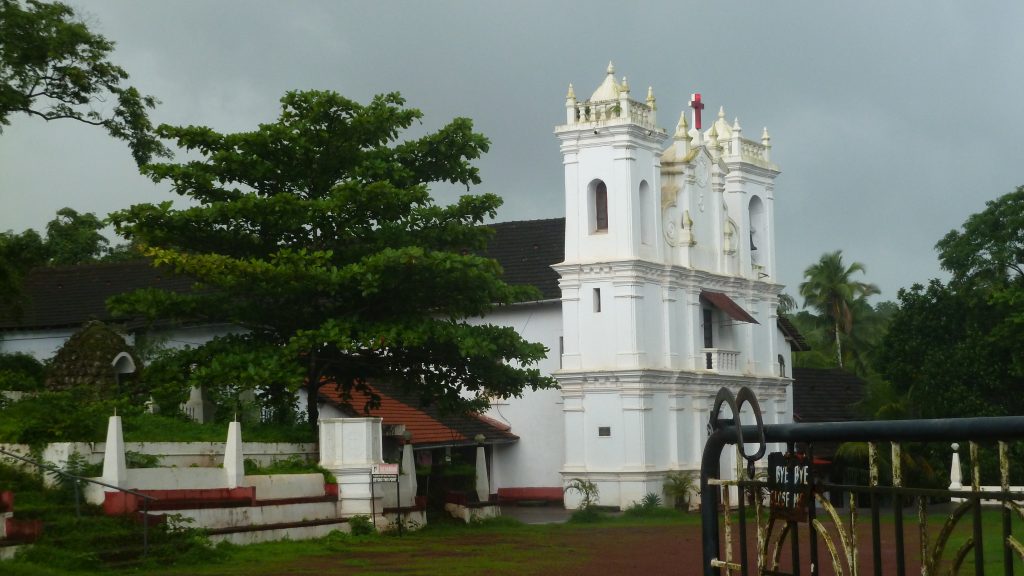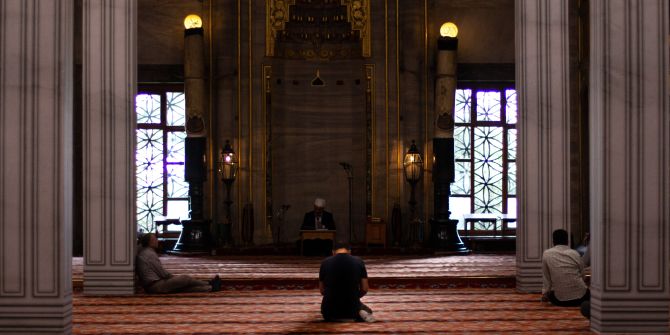A region with a long history of religious pluralism, Nilay Saiya writes about resurgent religious nationalism in South Asia and its impact on religious minorities. Focusing on India, Pakistan, and Sri Lanka, Nilay explains how this nationalistic shift contributes to climates of instability and violence. This can be overcome, Nilay suggests, by embracing “covenantal pluralism”.

Birthplace to a number of the world’s religious traditions and naturally diverse in religious expression, the region of South Asia is presently witnessing a serious threat to its pluralist character. This threat stems from increasingly violent strains of ethno-religious nationalism, extremist ideologies that politicize religion, and governments that pander to dominant religious communities for fear of losing their voter bank.
In the latest of a series of detailed reports on the state of global religious freedom, the non-partisan Pew Research Center documents that six of the seven countries in the region of South Asia (India, Pakistan, Nepal, Bangladesh, Bhutan, and Maldives) enforce “high” or “very high” governmental restrictions on religion, and the lone exception, Sri Lanka, is moving in this direction as well. Six of seven countries also experience “high” or “very high” social hostilities involving religion, including terrorism and other forms of faith-based violence. Only in the Middle East can higher levels of religious persecution be found.
Why, despite auspicious conditions a generation ago, is the region of South Asia the most hostile to religious pluralism outside of the Middle East and North Africa today? One of the major reasons has to do with the way religious majorities in these countries respond to the presence of religious minorities. The dominant response to religious heterogeneity in South Asia has been characterized by resurgent religious nationalism. Religious nationalists in the region see their states as inextricably intertwined with the dominant religious traditions of their countries. In this view, religious diversity is perceived as a threat, associated with moral relativism and competition for converts away from the “true faith.” The increasing nationalist sentiments rooted in religion throughout the region have resulted in social fragility and violence, often carried out by members of the dominant faith tradition, supported by the laws and policies of the state, against religious minorities.
This reality can be clearly seen in the region’s three most important countries: India, Pakistan, and Sri Lanka. In all three countries, a resurgent religious nationalism has spawned violence by those of dominant religious communities against minorities who are deemed to pose a threat to privileged faiths.
In India, the illiberal political theology of Hindutva (“Hinduness”)—supported by many Hindu nationalist politicians—calls for an integration of Hinduism and the state and the restriction of minority religious groups like Christians, Muslims, and Sikhs, who are believed to pose a threat to India’s status as a Hindu nation. The alliance between Hinduism and the state can be seen in the dominance of the Bhartiya Janata Party, legal discrimination against minorities (especially state-level “anti-conversion” laws), and state-sponsored, anti-minority violence. The Citizenship Amendment Act of 2019, which uses religious identity as a basis for citizenship, led to increased religious hostility and sectarian conflict in India. Arguably, inter-religious tensions have never been higher in India than they are today.
Pakistan too features an alliance between religion and the state. Officially an “Islamic Republic,” Islam retains a privileged position in public life and is afforded the right to dictate key aspects of law and politics at the expense of minority religious groups. The most obvious way the Pakistani state, in collaboration with religious extremists, attempts to quash religious pluralism is through its draconian blasphemy code, which bans defamation against Islam. This law, though, has been selectively applied against minorities and exploited by extremists for political gain, who often use it as a pretext to attack minorities. Scores of alleged blasphemers have been murdered in extrajudicial killings. The same culture that sustains Pakistan’s blasphemy code has given rise to thousands of Islamist terrorist attacks. It is clear from the available evidence that the Islamization of Pakistani society and the suppressing of religious pluralism has not made the country more secure.
In Sri Lanka, Sinhala Buddhist nationalists perceive religious minorities to be a threat to the religious identity of the state. Extremist Buddhist organizations like Bodo Bala Sena, Ravana Balava, Sinhala Savana, and the Sinhala Jathika Balamuluwa have launched massive campaigns, both online and on the ground, calling for the restriction of minority rights, particularly those of Muslims. Among other things, these groups have proposed a ban on the Islamic veil, the elimination of halal certification and cattle slaughter, the restriction of mosque construction, and the boycotting of Muslim businesses. Naturally, the activities of these groups have spawned a backlash, leading to major episodes of communal rioting and one of the world’s deadliest terrorist attacks on Easter Sunday 2019.
How can the countries of South Asia overcome this cycle of repression and violence? One promising approach involves an embrace of “covenantal pluralism.” Going beyond mere religious tolerance, covenantal pluralism entails a mutual pledge to not only respect but to defend the freedom of conscience of those of other religions/worldviews through the proactive building of relationships, the forging of trust, and the cultivation of empathy. In this view, all individuals are considered valuable members of society and deserving of liberty of conscience. Importantly, the philosophy of covenantal pluralism is not mere relativism or vague ecumenism. Rather, covenantal pluralism enables those of different faith traditions to live in a spirit of mutual cooperation and respect, even if they disagree on matters of faith and practice.
Applied to the realm of politics, covenantal pluralism recognizes that the promotion of a hegemonic religious culture at the expense of religious minorities only serves to produce violent religious conflict, stemming not just from aggrieved minorities but also from empowered majorities who use the laws and policies of the state to justify aggression against religious outsiders. In a legal and cultural environment of covenantal pluralism, religious communities in these countries would work proactively to build mutual trust and understanding, in the process creating cultural norms that make it possible for people of different worldviews to live together peacefully and productively.
State leaders often justify their support for majority religions on the grounds that such patronage is necessary for fostering a common identity, ensuring social stability, and protecting national security, which they believe are threatened by religious outsiders. These leaders may also believe that through their support for religion they can bolster their domestic standing among their religious constituencies by claiming to be defenders of the majority faith traditions within their states. Political elites thus seek out alliances with dominant religious communities because they hope to mobilize them to their advantage and squelch dissidents who may attempt to challenge their rule.
As the region of South Asia reveals, however, attempts to suppress religious pluralism—the encouraging of a militant Sinhala Buddhist nationalism in Sri Lanka, the passage of anti-conversion laws in India, and the enforcement of Pakistan’s blasphemy code—have only served to create climates of impunity which encourage instability and violence, stemming not only from those bearing the brunt of inequitable laws and policies, but, more commonly, from extremists hailing from the very religious communities favored by the state. South Asia needs a new paradigm, one that does not simply repeat the same platitudes of relativism that have already proven to be unpersuasive in these cultural contexts. The time is ripe for a pivot to covenantal pluralism, a holistic approach that can help thwart cycles of violence and contribute to a country’s overall wellbeing, stability, and security.
Note: This piece gives the views of the author(s), and not the position of the LSE Religion and Global Society blog, nor of the London School of Economics.






1 Comments